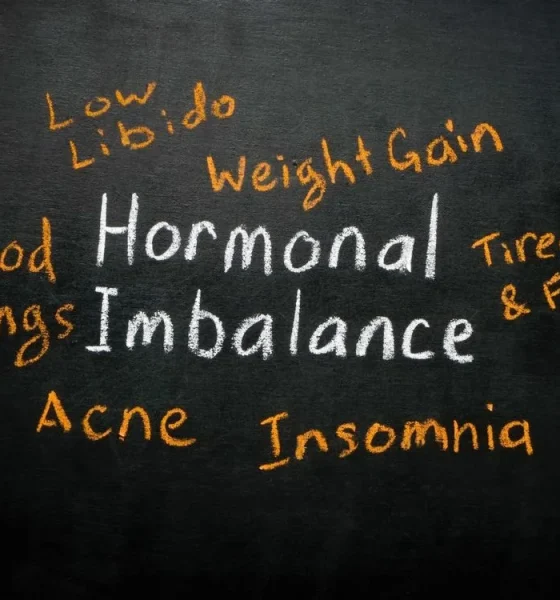Stress Management
Balancing Multiple Roles: How Trying to Be the Best in All Areas Leads to Feeling Stretched

Balancing Multiple Roles: How Trying to Be the Best in All Areas Leads to Feeling Stretched Too Thin
In today’s fast-paced world, the pressure to excel in every role we take on is immense. Whether it’s at work, in our families, friendships, or even personal development, we’re often expected to give 100% across the board. While striving for excellence is admirable, it’s easy to fall into the trap of overcommitting, resulting in exhaustion and burnout.
Here, we’ll explore, balancing multiple roles—how trying to be the best in all areas leads to feeling stretched too thin—and some strategies to maintain a healthy balance.
Recognize the Limits of Your Energy
One of the most challenging aspects of balancing multiple roles—how trying to be the best in all areas leads to feeling stretched too thin—is accepting that we have limited energy and time. Overloading yourself in multiple areas can result in subpar performance and physical and mental fatigue. It’s crucial to recognize your energy limits and avoid taking on too much. By being honest with yourself about what’s realistic, you can set boundaries and create a more balanced approach to your various roles.
Prioritize Roles and Tasks
Often, the desire to excel in every role stems from a fear of failure or disappointing others. However, not every task requires the same level of effort or urgency. Try to identify which areas truly need your full attention and which can be simplified. For example, maybe your role at work requires high focus during key projects, but certain tasks can be delegated or minimized. The same goes for family responsibilities, where teamwork can lighten the load. Understanding priorities can help prevent feeling overwhelmed by the pressure to be the best everywhere.
Practice Saying “No”
It’s common to feel guilty when we decline requests or say no to extra responsibilities, but learning to say “no” can be essential in balancing multiple roles—how trying to be the best in all areas leads to feeling stretched too thin. By selectively choosing the responsibilities you take on, you can dedicate more focus to fewer areas, improving your effectiveness and reducing stress. Remember, saying no isn’t about neglecting others; it’s about setting boundaries to protect your well-being so that you can show up fully where it matters most.
Let Go of Perfectionism
Perfectionism often leads to unnecessary stress, especially when juggling multiple roles. Trying to achieve perfection in all aspects of life isn’t sustainable and can leave you feeling stretched beyond your capacity. Instead of focusing on being perfect in every role, strive for “good enough” in some areas. For instance, if a task at work or home can be done efficiently rather than perfectly, consider this an accomplishment. Embracing imperfection frees up time and energy, making balancing multiple roles more manageable.
Schedule Time for Self-Care
While it may feel counterintuitive, prioritizing self-care is essential to managing various roles effectively. Taking even a few minutes a day to decompress, meditate, or simply relax can rejuvenate your energy and mental clarity. When we neglect self-care, we’re more likely to experience burnout, making it harder to fulfill our roles. Self-care isn’t selfish; it’s the foundation of maintaining the strength needed to balance life’s demands.
Celebrate Small Wins
The pressure to excel in every role can make us focus solely on what’s lacking or where we could be better. However, acknowledging small accomplishments can help counterbalance the weight of multiple responsibilities. Whether it’s completing a challenging task at work, helping your child with homework, or maintaining a positive relationship with friends, each achievement is a step toward successful role management. Celebrate these wins to build a sense of progress and confidence.
Seek Support from Others
Balancing multiple roles doesn’t mean you have to handle everything on your own. Friends, family members, and coworkers can offer support and lighten the load. Sometimes, a simple conversation with a friend can provide new perspectives or insights into managing responsibilities more effectively. By connecting with others, you not only share your challenges but may also discover valuable advice for easing the pressures of balancing multiple roles.
In summary, balancing multiple roles—how trying to be the best in all areas leads to feeling stretched too thin is a challenge faced by many. By setting realistic expectations, prioritizing self-care, and letting go of perfectionism, you can create a healthier balance in your life. Remember, the key to effective role management isn’t achieving perfection in every area but rather finding a sustainable way to distribute your energy and attention. Embrace the fact that it’s okay not to be perfect in every role; what matters most is showing up authentically and doing your best with what you have.
Resources
Hidden Signs of Hormonal Imbalance & How to Fix It Naturally

Hidden Signs of Hormonal Imbalance & How to Fix It Naturally
Hormones play a crucial role in regulating various bodily functions, from metabolism and mood to skin health and reproductive health. However, an imbalance in hormones can lead to several health issues that often go unnoticed. Identifying the hidden signs of hormonal imbalance early can help you take the right steps toward restoring balance naturally.
Hidden Signs of Hormonal Imbalance
- Unexplained Weight Gain or Loss
If you’re gaining or losing weight without changing your diet or activity levels, it could be a sign of fluctuating hormones. Insulin, cortisol, thyroid hormones, and sex hormones all play a role in metabolism. An imbalance in these hormones may lead to sudden weight changes. - Persistent Fatigue
Feeling exhausted even after a full night’s sleep? Chronic fatigue is one of the hidden signs of hormonal imbalance and may be linked to low thyroid function, adrenal fatigue, or fluctuating blood sugar levels. - Mood Swings & Anxiety
Excessive stress, anxiety, irritability, or depression can be linked to imbalances in estrogen, progesterone, and cortisol. Many women experience mood fluctuations due to hormonal shifts, especially during PMS, pregnancy, or menopause. - Skin Issues & Acne Breakouts
If you’re experiencing acne, dry skin, or excessive oiliness beyond your teenage years, your hormones could be to blame. Androgens, such as testosterone, can cause excess sebum production, leading to persistent breakouts. - Digestive Problems
Hormones like cortisol and estrogen influence gut health. High stress levels can lead to bloating, constipation, or diarrhea, indicating a hidden sign of hormonal imbalance that needs attention.
How to Fix Hormonal Imbalance Naturally
- Prioritize a Balanced Diet
Eating a nutrient-dense diet rich in healthy fats, fiber, and proteins can support hormonal health. Include foods like avocados, flaxseeds, nuts, and leafy greens to regulate estrogen and progesterone levels. - Manage Stress Effectively
Chronic stress leads to elevated cortisol levels, which can disrupt other hormones. Practicing yoga, meditation, and deep breathing exercises can help keep stress in check and restore balance. - Get Quality Sleep
Lack of sleep can cause a spike in cortisol and disrupt insulin levels. Aim for 7-9 hours of restful sleep every night to support optimal hormonal function. - Exercise Regularly
Physical activity helps balance insulin, cortisol, and sex hormones. Strength training, yoga, and cardio workouts can all contribute to maintaining hormonal equilibrium. - Use Natural Supplements
Certain supplements like magnesium, omega-3 fatty acids, and adaptogenic herbs (such as ashwagandha and maca root) can help support hormonal balance naturally. - Limit Toxin Exposure
Endocrine-disrupting chemicals (EDCs) found in plastic, processed foods, and beauty products can interfere with hormone production. Switching to organic skincare, using glass containers, and avoiding processed foods can reduce exposure to harmful toxins.
Recognizing the hidden signs of hormonal imbalance early on can prevent long-term health issues. By making simple lifestyle changes, such as improving your diet, managing stress, and ensuring quality sleep, you can restore hormonal harmony naturally. If symptoms persist, consulting a healthcare provider can help you get personalized guidance.
Taking control of your hormonal health is the key to feeling energetic, balanced, and thriving in all aspects of life. Start making small changes today and embrace a healthier, more vibrant you!
Stress Management
Why Do We Doubt Ourselves?

Why Do We Doubt Ourselves?
Self-doubt is a common mental barrier that affects almost everyone at some point in life. Whether it’s about making career decisions, pursuing passions, or stepping into unknown territories, this inner voice often holds us back from reaching our full potential. But why do we experience self doubt, and how can we overcome it?
The Root Causes of Self-Doubt
- Past Failures and Mistakes
One of the biggest reasons for self-doubt is our past experiences. If we have failed at something before, our mind builds a defense mechanism to avoid similar outcomes. This fear of failure creates hesitation, making us question our abilities even when we are fully capable. - Comparing Ourselves to Others
In the age of social media, comparison has become second nature. Seeing others succeed can sometimes make us feel inadequate. We often forget that people usually showcase their highlights, not their struggles. Constantly comparing our journey with someone else’s can feed self-doubt and make us feel we are not good enough. - Lack of Positive Reinforcement
Encouragement plays a vital role in building self-confidence. If we have grown up or worked in an environment where our efforts were not recognized, it can contribute to self-doubt. The absence of appreciation makes us question our capabilities and hesitate to take risks. - Fear of Judgment
The fear of being judged or criticized by others can fuel self-doubt. We worry about what people will think if we fail or if our decisions do not turn out well. This need for validation often stops us from taking necessary actions. - Perfectionism
Many people experience self-doubt because they aim for perfection. When we set unrealistic expectations for ourselves, any small imperfection makes us believe we are not good enough. This creates a cycle of procrastination and fear of not meeting high standards.
Overcoming Self-Doubt
- Recognize and Challenge Negative Thoughts
The first step to overcoming self-doubt is recognizing when we are experiencing it. Question the negative thoughts—are they based on facts or just fears? Replacing negative self-talk with rational and encouraging thoughts can help boost confidence. - Focus on Small Wins
Every small achievement counts. Instead of waiting for big successes, celebrate small milestones. Each win proves that we are capable and helps to diminish self-doubt over time. - Practice Self-Compassion
Be kind to yourself. Everyone makes mistakes and has doubts. Instead of harshly criticizing yourself, treat yourself with the same kindness and encouragement you would give a friend. - Surround Yourself with Positive Influences
Being around supportive and positive people can help reduce self-doubt. Seek mentors, friends, or communities that uplift you rather than those who reinforce your insecurities. - Take Action Despite Fear
Sometimes, the best way to overcome self-doubt is to take action despite the fear. The more we push through our doubts, the weaker they become. Confidence builds through experience and persistence.
Finally I want to say, Self-doubt is a natural feeling, but it does not have to control our lives. By understanding its root causes and actively working to overcome it, we can move forward with confidence and achieve our goals. Remember, even the most successful people have faced self doubt, but they didn’t let it stop them. You are capable of more than you think—believe in yourself!
Stress Management
5 Signs to Know a Toxic Person

5 Signs to Know a Toxic Person
Toxic people can disrupt your mental peace, drain your energy, and make you question your worth. Identifying such individuals early on is crucial for your emotional well-being.
Here are 5 signs to know a toxic person, which can help you recognize and distance yourself from such negativity.
1. They Constantly Play the Victim
One of the most prominent signs of a toxic person is their tendency to play the victim in every situation. They refuse to take accountability for their actions and often blame others for their failures or shortcomings. Whether it’s a failed relationship or a workplace conflict, they always portray themselves as the one wronged. Over time, this behavior can make you feel guilty and emotionally exhausted.
2. They Drain Your Energy
Have you ever felt emotionally or physically drained after spending time with someone? This is another telltale sign of a toxic person. They thrive on negativity, often complaining, gossiping, or creating drama. Their conversations tend to be one-sided, with little regard for your feelings or experiences. Spending time with them can leave you feeling mentally exhausted and unmotivated.
3. They Are Extremely Controlling
A toxic person often seeks control over others. They may manipulate you into making decisions that benefit them, disregarding your opinions or needs. This controlling behavior can manifest in various forms, such as excessive criticism, constant questioning, or even emotional blackmail. Their goal is to dominate the relationship, leaving you feeling powerless and dependent.
4. They Lack Empathy
Another key sign to know a toxic person is their inability to empathize with others. Toxic individuals are often self-centered and struggle to understand or care about how their actions impact others. They dismiss your emotions or concerns, making you feel invalidated and unimportant. This lack of empathy is particularly harmful in close relationships, as it creates a one-sided dynamic.
5. They Thrive on Drama
A toxic person seems to attract and thrive on drama. Whether it’s creating conflicts at work, stirring up issues in their social circles, or instigating arguments in relationships, they are often at the center of chaos. They enjoy the attention and control they gain from these situations, even at the expense of others’ peace of mind.
How to Deal with a Toxic Person
Now that you know the 5 signs to know a toxic person, it’s important to take steps to protect yourself:
Set Boundaries: Set bright boundaries that you must maintain deliberately. Because toxic people usually probe your limits it’s essential to set firm boundaries and remain consistent.
Distance Yourself: Take interactions with toxic people to a minimum level and attempt cut ties if possible.
Focus on Yourself: Take time to practice behaviors which support your mental health and emotional state
Recognizing the 5 signs to know a toxic person is the first step toward safeguarding your mental health and building positive relationships. Remember, you have the right to prioritize your peace and happiness. Surround yourself with individuals who uplift and support you rather than drain your energy or bring you down.
By identifying toxic behaviors and taking proactive measures, you can create a healthier, more balanced life. Choose positivity, protect your boundaries, and invest in relationships that nurture your growth.
-

 Healthy Habits6 months ago
Healthy Habits6 months ago5 Morning Routines for Maximum Energy
-

 Sustainable Living6 months ago
Sustainable Living6 months agoImportance of Self-Love in Mental Health
-

 Healthy Habits6 months ago
Healthy Habits6 months agoBest 6 Ways to Stay Mentally and Physically Healthy
-

 Mindfulness7 months ago
Mindfulness7 months agoMindfulness
-

 Mindfulness6 months ago
Mindfulness6 months ago“Practice of Mindfulness: Unlock the Power of Empowering Self”.
-

 Meditation Practices6 months ago
Meditation Practices6 months agoOsmosis App for Pharma Students is a Must-Have Tool
-

 Healthy Habits6 months ago
Healthy Habits6 months agoMenstrual Cycle Journal to Empower Your Health
-

 Lifestyle6 months ago
Lifestyle6 months agoSelf-Compassion for Working Moms: Balancing Self-Care with Motherhood













